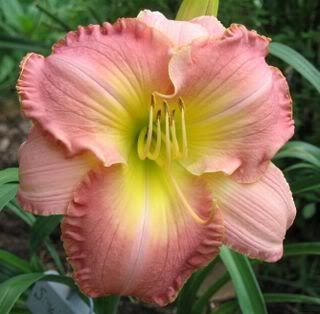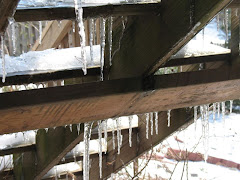 **
**And, boy, do we need this! Let me elaborate a little. Pick a topic. Okay, let's look at Chapter 3, Soil Enrichment and Fertilization. Dr. Gillman first talks to us (that's what it feels like, when you're reading it) about our soil and our soil type. Then, we move on to our choices free of synthetic chemicals. For each one, compost and manure, natural fertilizers, green manure and cover crops, intercrops, and organic amendments for pH adjustment, after the explanation of what it is and how it can be used, you (the reader) are given three options: (the aforementioned) Benefits, Drawbacks and The Bottom Line. How cool is that! You make the decision...and now, you can actually make an informed decision.
Synthetic fertilizers, amendments and pH adjustments are covered next and yes, you get the same three options. The science and actual studies are referenced (you can check the Bibliography in the back for further information). Finally, the chapter concludes with a highlighted box entitled The Best Choices For You. Now, that you have all the information, you can make a choice that you not only feel great about, but you know why it is right for you.
You'll also find answers to many questions that you've had hanging around. One, for me, was organic fruit. Having attended lectures and read some on the subject, I must admit I was a bit surprised at just how beautiful some of the fruit is in a organic-type store I occasionally visit (quite a drive through lots of nasty traffic). It seems that some of the fruit we take for granted simply can't be grown without pesticide help...I mean, no one will buy fruit with insects....so spraying is what a grower must do to produce the beautiful fruit we want to buy (and who doesn't pick it over for the very best?). So, how was said fruit grown in said store?? Well, that mystery (and many others) is solved as 'natural' pesticides, we learn, are allowed. Those 'natural' pesticides can be just as tough (maybe more so) than a synthetic pesticide (chemically produced)...but here's the disturbing part I learned: Testing isn't done for them like it is for synthetic pesticides! Plus, because they typically don't last as long as their synthetic counterparts, they are used more often (pages 181-183). Yikes.
It's pretty clear to me that Dr. Gillman isn't on any particular side. Except the truth and what we know from science. I like that. Facts are good things. We can all have our own opinions but not our own facts! Facts are facts. So, go on...you know you want it, but I'm saying you need it...and add this book to your gardening reference shelf. You'll learn a lot and better yet, you'll be able to share with others why you've made the choices you have.
**
Thanks to Annie of The Transplantable Rose for her suggestion of the tabs vs. my proclivity to turn down pages...





















5 comments:
Good review, Katie! I enjoyed reading this - a book I have on reserve at the library.
The tabs are a great idea !
It IS a very fine review, Katie--I've read several such favourable reviews in the past couple of weeks, enough to convince me I need to get this book on my bookshelf.
You make it sound interesting, Katie [still used to calling you Gotta Garden!] but I never even finished the book I started for the Dec/Jan Garden Bloggers Book Club so I won't promise to start this one yet!
Annie at the Transplantable Rose
I think I would like this book since it is scientific and fact based, giving the reader an opportunity to make an informed decision. I'll have to see if my library has it.
Thanks for the review! I'd love to read something that's no-nonsense and unbiased, and the part about "organic" pesticides is very surprising!
Post a Comment